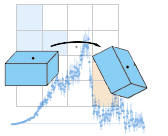
| HOME | PEOPLE | RESEARCH | ACADEMICS | TRAVEL/VISITORS | LINKS | CONTACT |

|
Web Mail
Mailing Lists
Computing Resources
Site Map
Rehabilitation Robotics and Multimodal Motor Training
Prof. Dr.-Ing. Robert Riener
Robert Riener studied Mechanical Engineering at TU Muenchen and University of Maryland. He received a PhD degree in Biomedical Engineering from the TU Muenchen in 1997. After postdoctoral work from 1998-1999 at the Centro di Bioingegneria, Politecnico di Milano, he returned to the TU Muenchen, where he completed his Habilitation in the field of Biomechatronics in 2003. From 2003-2006 he was Assistant Professor of Rehabilitation Engineering at the Automatic Control Laboratory of ETH Zurich and Spinal Cord Injury Center of the University Hospital Balgrist. Since June 2006, he has been Associate Professor for Sensory-Motor Systems at the Mechanical Engineering Department, ETH Zurich, while keeping his affiliation with the Spinal Cord Injury Center. His research interests include biomechanics, virtual reality, haptic display technologies, and rehabilitation robotics. He has authored and co-authored more than 280 peer-reviewed journal and conference articles as well as 19 international patents. He is editor of several international journals, e.g. associate editor of the IEEE TNSRE. He has received several awards including the ISPO Academic Challenge Award in 2003, the humanTech Innovation Prize in 2005, and the Swiss Technology Award in 2006.
11:00 AM to 12:00 PM
114 Steele
This talk gives an overview of new human-centered robotic approaches applied to the rehabilitation of arm function and gait in patients with neurological movement disorders such as incomplete spinal cord injury, stroke or cerebral palsy. Patient-cooperative controllers take into account the patient's intention and efforts rather than imposing any predefined movement. Multi-modal displays (visual, acoustic, tactile) further improve the patient-machine interaction and enhance the therapeutical output. Further research activities are related to our Multi-Modal Motion Synthesis Laboratory (M3 Lab), which is being used to investigate neurological and biomechanical principles of human motor learning and motor control. This is achieved by applying multi-modal and user-cooperative techniques to healthy subjects performing a variety of different movements in sports (basic motor research, sports, entertainment). Multi-modality and cooperative control have the potential to improve the motor learning effects in motor therapies and further movement training applications.
|
©2003-2011 California Institute of Technology. All Rights Reserved webmaster |
|